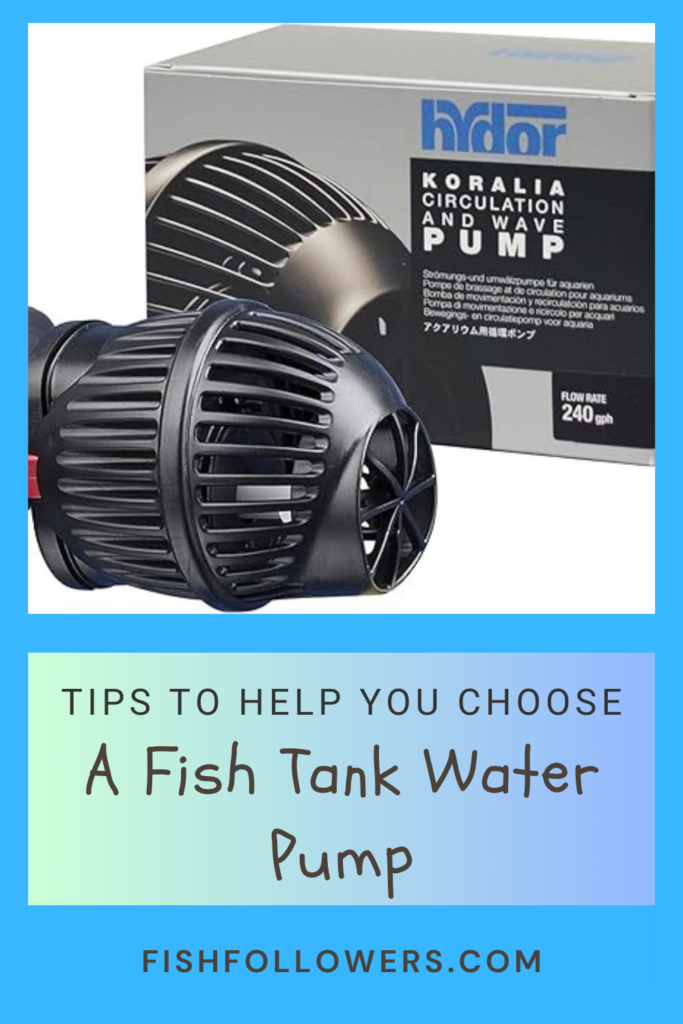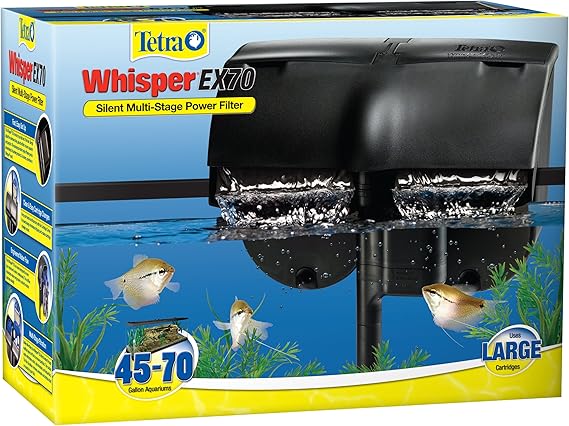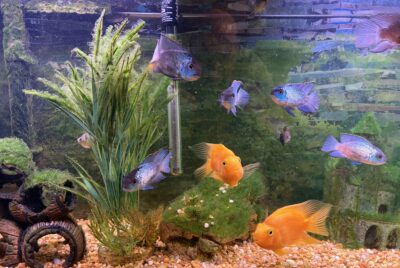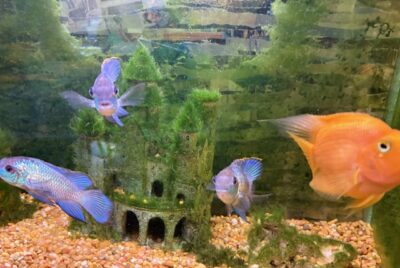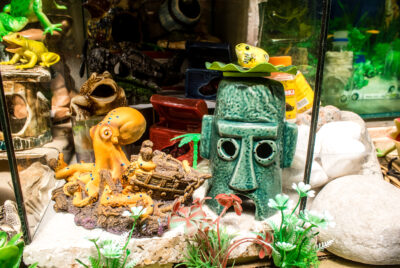Fish Tank Water Pump- How To Choose
Keeping a fish tank is not just about having beautiful fish; it’s also about creating a healthy and balanced environment for them to thrive- you don’t want to mistreat the fish! One of the critical components in achieving this balance is the fish tank water pump. If you’re a tropical fish guy like me, you know that selecting the right equipment can be both exciting and overwhelming. This article aims to demystify fish tank water pumps and help you choose the best one for your wet pets.
Understanding Fish Tank Water Pumps
What is a Fish Tank Water Pump?
A fish tank water pump is a device that helps circulate water within your aquarium. It ensures that the water remains oxygenated, distributes nutrients, and maintains a consistent temperature throughout the tank. Essentially, it mimics the natural water flow found in rivers and lakes, providing a more natural habitat for your fish. Not the EXACT same thing as a filter– but many times a filter can serve as a pump.
Types of Fish Tank Water Pumps
- Submersible Pumps– Submersible pumps are designed to operate underwater. They are ideal for small to medium-sized tanks and are relatively quiet. Since they are submerged, they do not require much space and are easy to conceal within the tank’s landscape.
- External Pumps– External pumps are placed outside the tank and are connected via hoses. These are typically more powerful than submersible pumps and are suitable for larger tanks. They can handle higher flow rates and are easier to maintain without disturbing the tank environment.
Choosing the Right Fish Tank Water Pump
Factors to Consider
- Tank Size– The size of your tank plays a significant role in determining the type of pump you need. A small tank might only require a simple submersible pump, while a large tank would benefit from a powerful external pump to ensure adequate water circulation.
- Flow Rate– The flow rate, measured in gallons per hour (GPH), indicates how much water the pump can move. It’s essential to match the pump’s flow rate with your tank size. A general rule of thumb is to aim for a flow rate that can move at least four times the volume of your tank per hour.
- Noise Level– Nobody wants a noisy aquarium pump disrupting the tranquility of their living space. Submersible pumps tend to be quieter, while external pumps can vary in noise levels. Look for pumps that advertise quiet operation if noise is a concern for you. My wife is CONSTANTLY complaining about this… so, happy wife-happy life- get a quite one!
Popular Brands and our reviews-
1. Tetra Whisper Water Pump
The Tetra Whisper Water Pump is renowned for its quiet operation and reliable performance. Designed for small to medium-sized aquariums, it’s easy to install and maintain. The Whisper series lives up to its name, providing powerful yet nearly silent water circulation. It’s an excellent choice for those who want a peaceful environment without sacrificing efficiency.
2. Aqueon QuietFlow Pump
Aqueon’s QuietFlow Pump is a versatile and durable option for various tank sizes. Its high flow rate and adjustable settings make it suitable for both beginners and experienced aquarists. The QuietFlow series features energy-efficient motors and sturdy construction, ensuring long-lasting performance. Users appreciate the easy setup and minimal maintenance requirements.
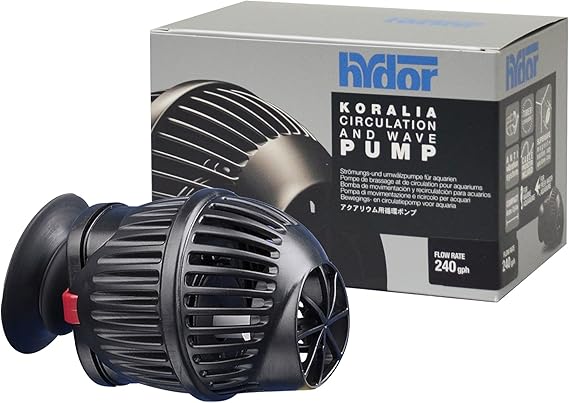
3. Hydor Koralia Nano Aquarium Circulation Pump
The Hydor Koralia Nano is perfect for small to nano-sized aquariums. It offers a compact design with strong, wide water flow, ideal for creating natural water movement. The magnet-suction cup mounting system makes it easy to position within the tank. Hydor’s pumps are known for their reliability and energy efficiency, making the Koralia Nano a popular choice among fishkeepers.
4. Fluval Sea SP2 Sump Pump
Fluval’s Sea SP2 Sump Pump is designed for larger aquariums and more advanced setups. It boasts a powerful motor and high flow rate, making it perfect for large tanks or systems requiring substantial water movement. The SP2 is known for its durability and quiet operation despite its power. This pump is a top pick for serious aquarists who need robust and dependable performance.
Installation and Maintenance Tips
- Installing Your Water Pump– Installing a water pump might seem daunting, but it’s quite straightforward with the right guidance. For submersible pumps, place the pump in the desired location within the tank, ensuring it’s fully submerged. Connect the power supply and check for proper water flow. For external pumps, follow the manufacturer’s instructions carefully, connecting the hoses to the inlet and outlet, and securing the pump outside the tank.
- Maintenance Best Practices– Regular maintenance is key to the longevity and efficiency of your water pump. Clean the pump’s intake and impeller regularly to prevent clogs. Check for any signs of wear or damage and replace parts as needed. Keeping the pump clean ensures optimal performance and prolongs its lifespan.
In summary, a fish tank water pump is an essential component for maintaining a healthy and thriving aquarium. By understanding the different types of pumps, considering key factors like tank size and flow rate, and choosing a reliable brand, you can create the ideal environment for your fish. Remember to install and maintain your pump properly to enjoy its benefits for years to come.
FAQs
- Why is a water pump important for my fish tank? A water pump helps circulate water, ensuring it remains oxygenated and evenly distributes nutrients, creating a healthier environment for your fish.
- How do I choose the right flow rate for my tank? Aim for a flow rate that can move at least four times the volume of your tank per hour to ensure proper water circulation.
- Are submersible pumps better than external pumps? It depends on your tank size and needs. Submersible pumps are quieter and ideal for small to medium tanks, while external pumps are more powerful and suitable for larger tanks.
- How often should I clean my water pump? Regular maintenance is crucial. Clean the intake and impeller every few weeks and check for any signs of wear or damage.
- Can a noisy pump disturb my fish? Yes, excessive noise can stress fish. Opt for pumps that advertise quiet operation to maintain a peaceful environment in your tank.
